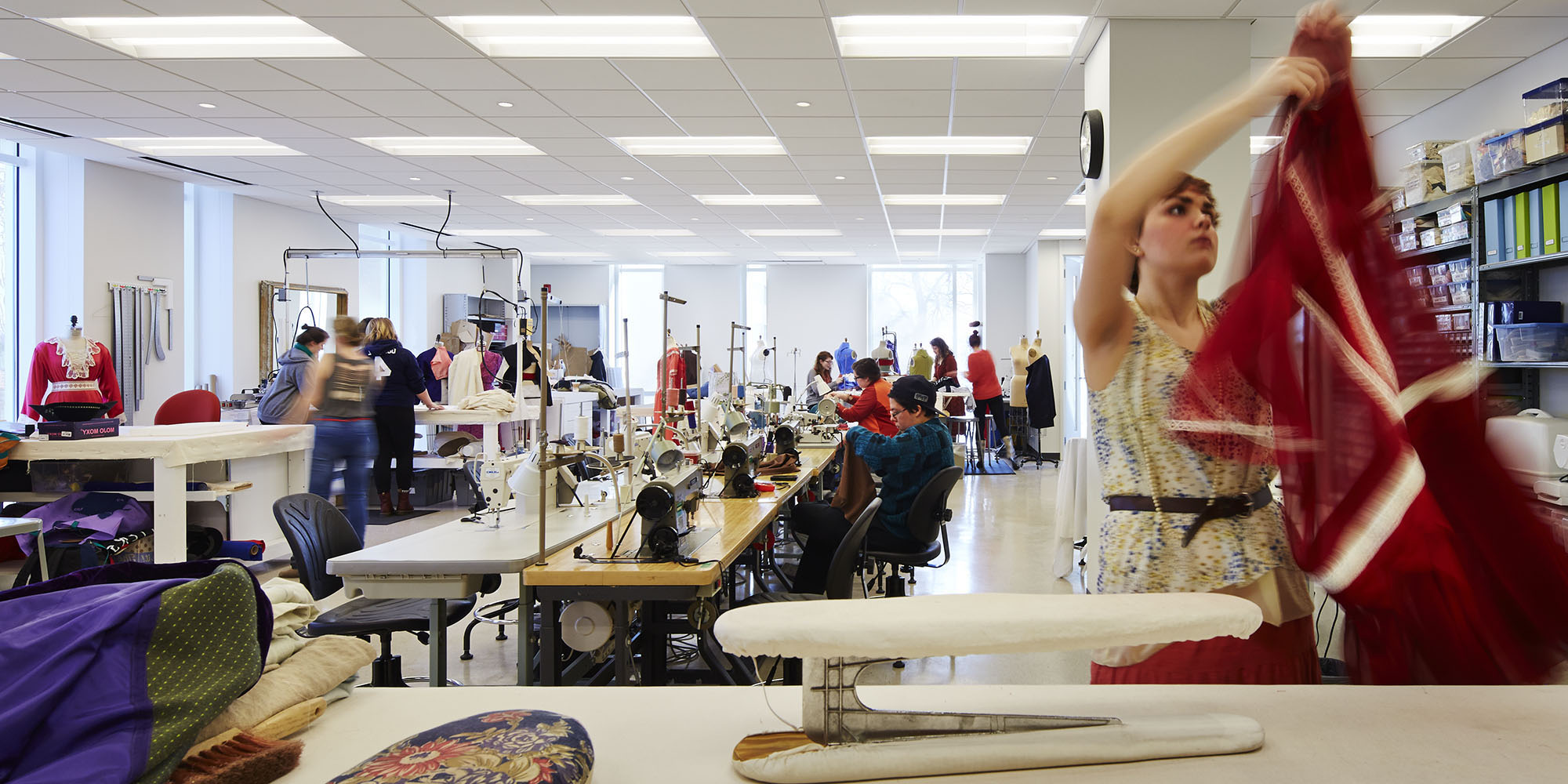/conservatory/PublishingImages/TheatreCostumeTechnology.jpg
RandomStandardImageHeaderWH1
The Theatre School’s Bachelor of Fine Arts (BFA) degree in Costume Technology is designed to prepare students to work in the costume industry in a variety of roles. In addition to the four year course sequence, students gain practical production experience as stitchers, firsthands, drapers, craftspeople, wardrobe, and shop assistants in our production season. Costume Technology students learn to interpret, pattern, construct, and craft costume designs into the garments and accessories that actors wear. They collaborate with each other, student designers, actors, and our professional costume shop staff throughout their years at The Theatre School.
Students learn from a distinguished award-winning faculty of professional designers and artists both in the classroom and through individual guidance and advising during production work. Students receive formal and informal feedback from faculty through portfolio presentations and exhibits of their work each year.
Request InformationVisit The Theatre SchoolApply Online
BFA Costume Technology Curriculum
The first year curriculum is taken in collaboration with other design/technology students and is an immersion into the culture of production and design. Students learn the basics of sewing, construction, fabric dyeing, and working in a costume shop. They take basic drawing and design classes as well as a script analysis class. Students complete three production crew assignments which will usually include one or two assignments directly related to costuming and one or two in another area of production.
In the second year students continue with construction classes focused on patterning, draping, and general crafts. Students take two quarters of costume hair and makeup history, a series of three costume design classes, and a series of three makeup classes. In either the 2nd or 3rd year, students take a costume management class and a textiles class (offered on alternate years). Students work throughout the year as stitchers in our production season.
In the third year, students take a millinery class in addition to a series of advanced costume technology classes with 4th year students; these classes alternate every other year and focus on period costuming, 20th century tailoring, and special topics. Students work as firsthands, drapers/cutters, craftspeople, or shop assistants for our production season and work collaboratively with colleagues, designers, and shop staff to implement and construct designs.
In the fourth year, students take a series of advanced costume technology classes alongside the 3rd year students; these classes alternate every other year and focus on period costuming, 20th century tailoring, and special topics. The fourth year of the program is a transition year, further developing students' abilities while preparing students to enter the profession. Students continue work in our production season and have the option of pursuing a professional internship of their choosing.
At the end of the year, students engage in mock interviews with local costume shops and can choose to participate in The Theatre School's Graduate Showcase event.
Liberal Studies
In addition to the major's requirements, students complete 52 quarterly credit hours (13 courses) in the university’s
Liberal Studies Program. Courses are taken in theatre history, writing, quantitative reasoning and technological literacy, philosophical inquiry, religious dimensions, scientific inquiry, understanding the past, multiculturalism in the United States, and electives. These liberal studies courses are scheduled during the first three years of the program.

Get more information
Complete the form below to receive more information about this degree program.
If the form fails to load or displays incorrectly,
click here to fill out an alternate form.